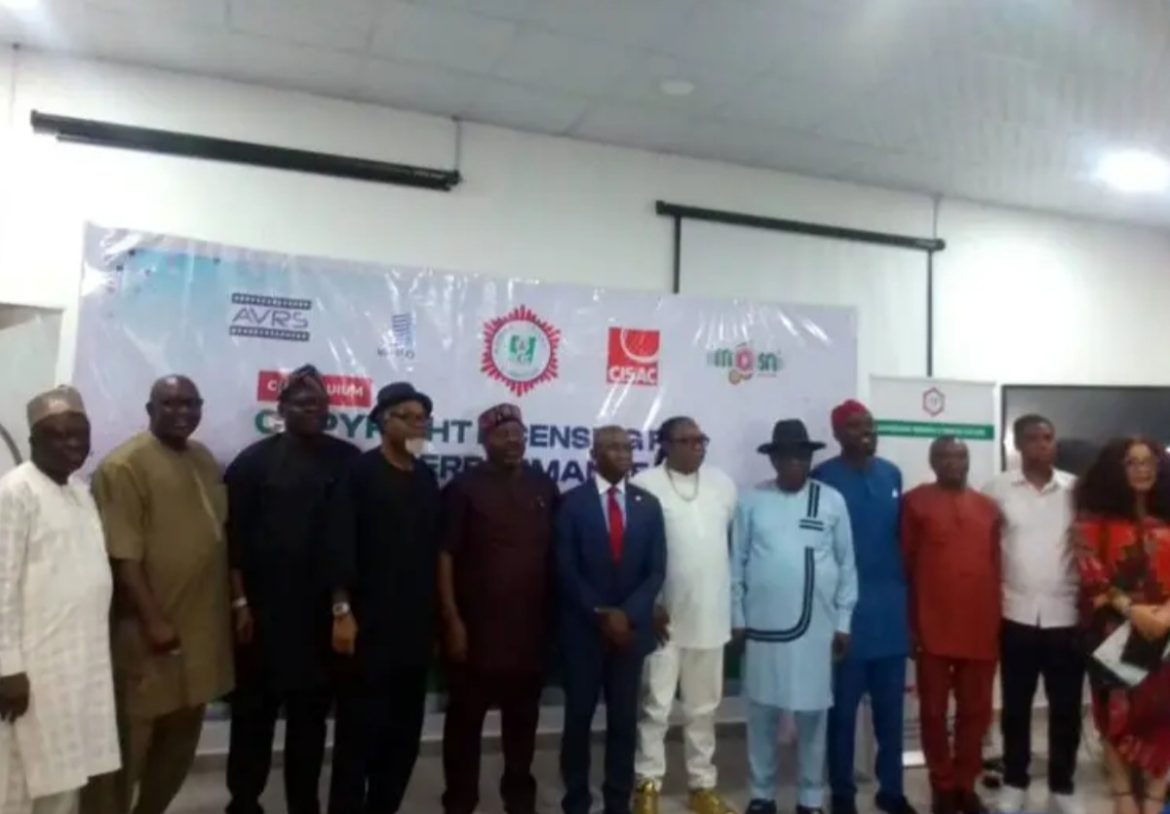By Priscilla Osaje
Nigerian Copyright Commission (NCC) has called on the users of copyright works especially in hospitality businesses to obtain performance licences for the use of copyright works from copyright owners to enable them benefit from their creativities.
The Director- General of NCC, Dr John Asein, made the call at the Colloquium on Copyright Licensing of Public Performance Rights, in Commemoration of the 2025 African Copyright and Collective Management Day in Abuja on Wednesday.
Asein said that the Copyright Act 2022, made the obligation cleared that hotels and hospitality businesses must secure licences before publicly performing music, films, or broadcasts.
“While some may be tempted to cut corners, they must recognise that musicians, recording companies, actors, and film producers deserve to recoup from the secondary use of their works.
“When their creations are woven into the ambience of a hotel lobby, a guest room or a restaurant, they are no less part of the hotel’s commercial attraction than the service.
“It is therefore a matter of equity that they are fairly compensated.
“Cable and broadcasting organisations also carried distinct responsibilities by transmitting content into homes, hotels, and public venues, as well as providing decoders or other devices because they sit at a crucial point in the value chain,” he added .
The NCC boss added that the scope of the licence they offered to subscribers must be cleared and unambiguous, stressing that a subscription licence does not automatically confer rights of public performance in commercial spaces.
He said that hotels and similar establishments must obtain performance licences for such uses.
“This clarity is vital to avoid misuse, ensure compliance, and safeguard the legitimate interests of content creators.
“Imperatives of the new regulations, the Commission recognised the challenges of enforcement and the complexities of multiple rights, reason for the introduction of the Collective Management Regulations 2025.
“These Regulations seek to entrench accountability and transparency in the collective management system, ensuring that right owners are fairly remunerated and users have a seamless and trustworthy means of clearing rights.
“Licensing of public performance rights should be straightforward and driven by good-faith negotiations. Where disagreements arise, the Act and the Regulations provide for prompt recourse to the Commission’s Dispute Resolution Panel.
“This mechanism is available to ensure that disputes are resolved efficiently, without acrimony, and in a way that sustains mutual respect and good business practice.”
He said that the commission had earlier issued a Copyright Advisory, warning users of copyright works, especially hotels and other in the hospitality business to regularise their operations.
Asein added that they should do that by obtaining appropriate licences for the use of copyright works from copyright owners or the collective management organisations representing them.
“For the avoidance of doubt, the licence granted by Multichoice Nigeria Ltd., the paid satellite television service that provided the contrivances through which the hotel accessed the audiovisual works in question did not avail the hotel.
“We therefore call on Multichoice and all other cable stations to make full disclosure to their commercial subscribers on the limits of the licence granted at the point of subscription.
“International licensing systems have shown the importance of transparency and businesses certainty while ensuring creators are paid.”
According to him, the commission has renewed its commitment to providing an enabling environment for right owners to maximise the return on their creative endeavour, while users are allowed legitimate access in return for their user licence.
He urged the stakeholders to remember that “compliance is not just a legal requirement but a moral and economic imperative”.
The NCC boss added that respecting boundaries and honouring the rights of creators, Nigeria’s creative economy would continue to thrive by enriching both our culture and our commerce.
He said that the colloquium aimed at engaging frank dialogue for the promotion of a balanced copyright system that was mutually beneficial to both business operators and the creative community.
According to him, collective management succeeds where users were provided clarity and right owners were treated fairly.
“Today’s event focused on licensing of public performance rights through the collective management system, as copyright law grants authors a wide bundle of rights, the right of public performance is among the most intricate, because of its diverse application in user environments.
Also speaking, Chief Obi Asike, Director -General, National Council for Arts and Culture, in his keynote address, said copyright remained the foundation of creative industry growth, adding that rights management was what enable contracts, licencing, investment and royalties.
According to him, they do not lack laws, but rather they lack implementation enforcement by making laws to work for the benefits of creators, businesses and investors.
Mr Mahmood Ali-Balogun, Chairman, Audio-Visual Rights Society (AVRS), said the CMOs ensure that artists were compensated.
According to him, their existence is not to hinder anybody’s business, rather they aim is to help our members collect money they cannot ordinarily come to collect from the user .
“I appeal to NCC to enforce the laws in order for people to know that laws are behind them in what we are doing.
“We are not those local government touts who go to collect money, but what we are doing is quite legitimate.
Pupa Oritz Wiliki, Chairman, Musical Copyright Society Nigeria (MCSN), said creative people were not pensioners, but their work happens to be their pension.
“It is sad that those who have given their best in making people happy, forgetting their sorrows, they die in sorrows.
This is because there is no money to actually take care of themselves, because some of the money were left for people who do not even understand where the sweat was coming from.
“I agree that today we have a great NCC who is very supportive of ensuring that the creative people get their dues. We are happy with that, but we still also want them to do more in terms of enforcement,” he said. (NAN)

